Green hydrogen solution for Australian agriculture, ready for investment
HydGene Renewables is paving the way for Australia’s carbon-zero future, using biowaste to produce 100% renewable and green hydrogen on-site and on-demand. The solution will provide farmers with low-cost and sustainable alternatives for ammonia, transport and seasonal energy storage. Now the startup is seeking investment to source alternative feedstocks and scale its technology.
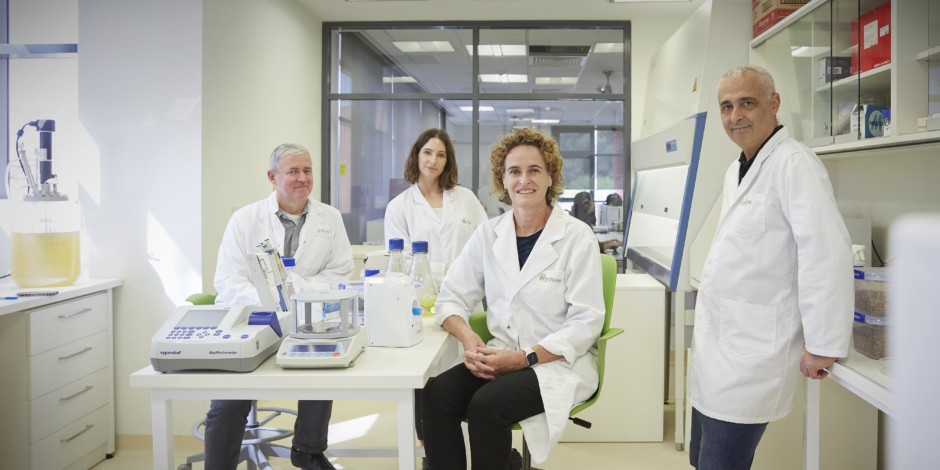 HydGene Renewables founding team. From left - Robert Willows, Kerstin Petroll, Louise Brown, Tony Jerkovic. Photography by Nick Cubbin.
HydGene Renewables founding team. From left - Robert Willows, Kerstin Petroll, Louise Brown, Tony Jerkovic. Photography by Nick Cubbin.
Powering the future and achieving net zero is one of the greatest challenges of our time. Hydrogen, the most abundant element in the universe presents a unique opportunity – when it’s converted to green hydrogen.
HydGene Renewables is leading this charge with its carbon neutral and high purity hydrogen solution, produced onsite at the farm, from renewable plant-based feedstocks, which removes the high-costs of transport and storage, long associated with hydrogen.
The Co-founders and bioengineers of HydGene, Louise Brown, Robert Willows, Kerstin Petroll and Tony Jerkovic, are changing the way green hydrogen is made and were recently awarded for their efforts, as one of Australia’s top 23 game changing companies in the Tech23 2021 Showcase.
Established in 2020, the Macquarie University spinout, now based in The Future Project at Kings School in Parramatta, Sydney boasts a team of eight scientists. With a goal to reach AUD$2 per kilogram, HydGene energy will be cost-competitive with fossil fuels, replace grey hydrogen and help to fast-track the green hydrogen economy – all the while edging the world that bit closer to the 2050 net zero carbon emissions target.
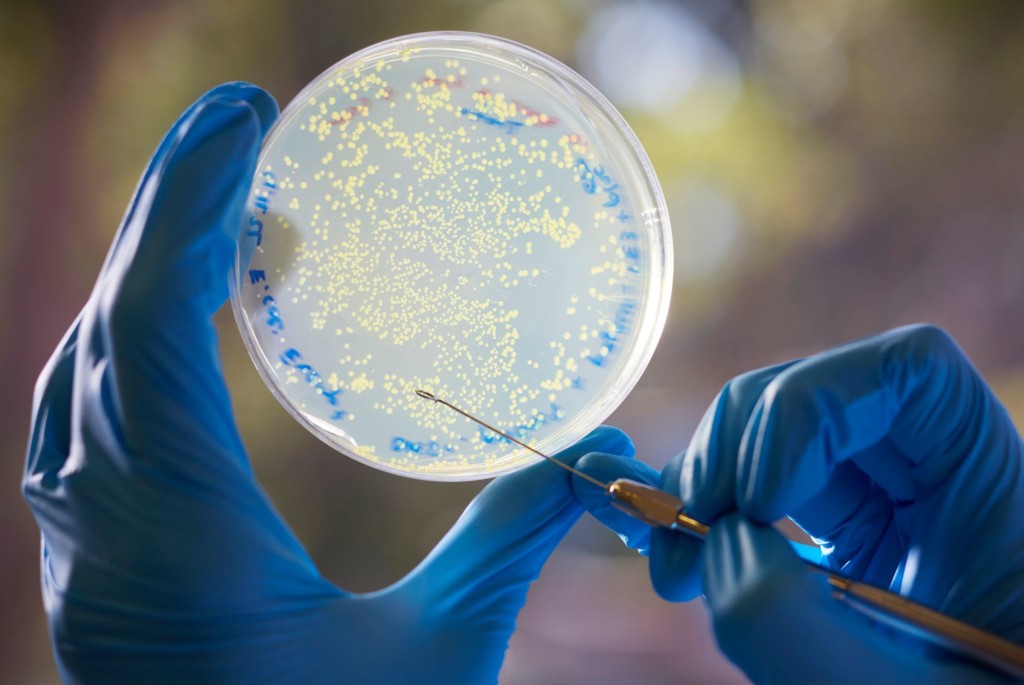
Selection of high performing hydrogen producing bacterial strains.
Their hydrogen producing biocatalyst solution is deployed in a modular cartridge, which can be readily scaled to support the decarbonisation of major existing hydrogen industries including the farming, chemical manufacturing, and transportation sectors.
RELATED: Global exports and the green ‘basket fillers’
HydGene is able to take the sugars from feedstocks, such as straw and food waste. Using synthetic biology, they reprogramed the bacterial microbes using the DNA blueprint of algae to turn these sugars into clean renewable hydrogen gas. The team first started looking at straw and how they could extract the sugars.
“It just blew our minds how well it could work. You can extract a lot of sugars from straw. If you take 100 tonnes of straw, you can get 40 tonnes of sugars to use – that’s enough to power 1,000 houses each day. We’re now trying to make the process more efficient fivefold to be able to power even more houses,” explained CEO and Co-founder, Louise Brown.
RELATED: Animal-free fats and oils give alternative proteins a kick of flavour
The startup is now seeking investment and partners to explore other agricultural sources to help support sustainable farming, such as hay and woodchips, and continue scaling the technology.
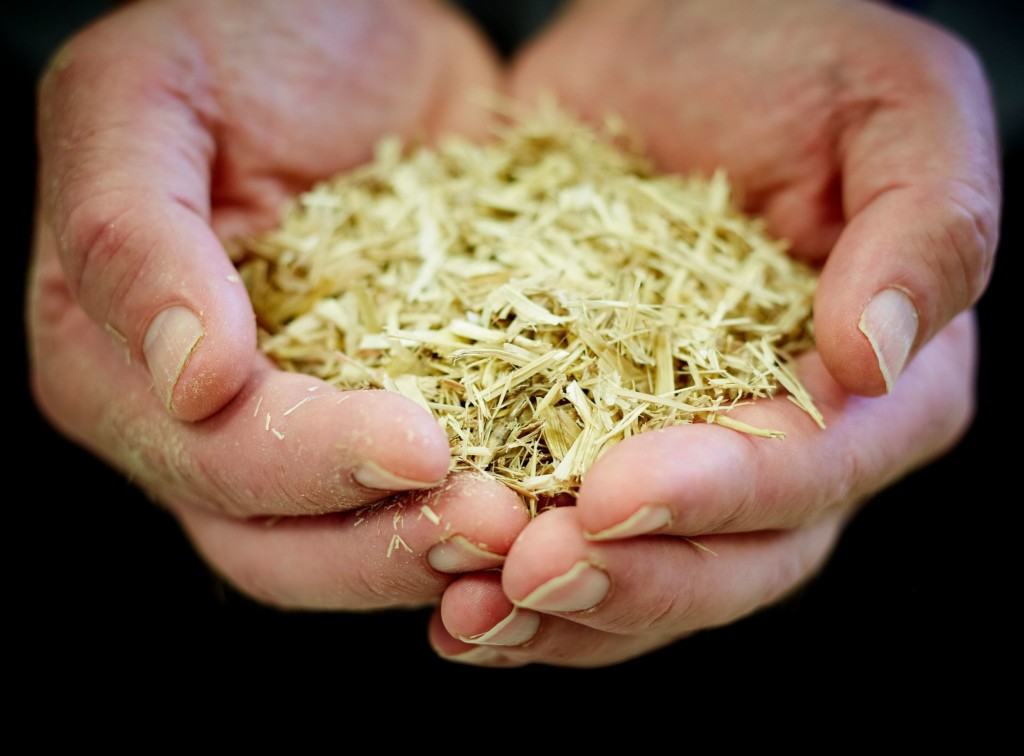
Straw stubble provides a rich source of sugars for hydrogen production using HydGene’s biocatalyst technology.
Why should farmers care about hydrogen?
There are many benefits to using hydrogen on farm to make farming practices more sustainable and efficient. HydGene is focusing on three areas; ammonia, transport and seasonal energy storage.
“Farmers use ammonia in their fertilisers. This is a great pain point for farmers, as costs are starting to increase across the world. The hydrogen used to make ammonia is from the fossil fuel industry, we need to decarbonise hydrogen to make green ammonia. We want to supply this to farmers,” said Louise.
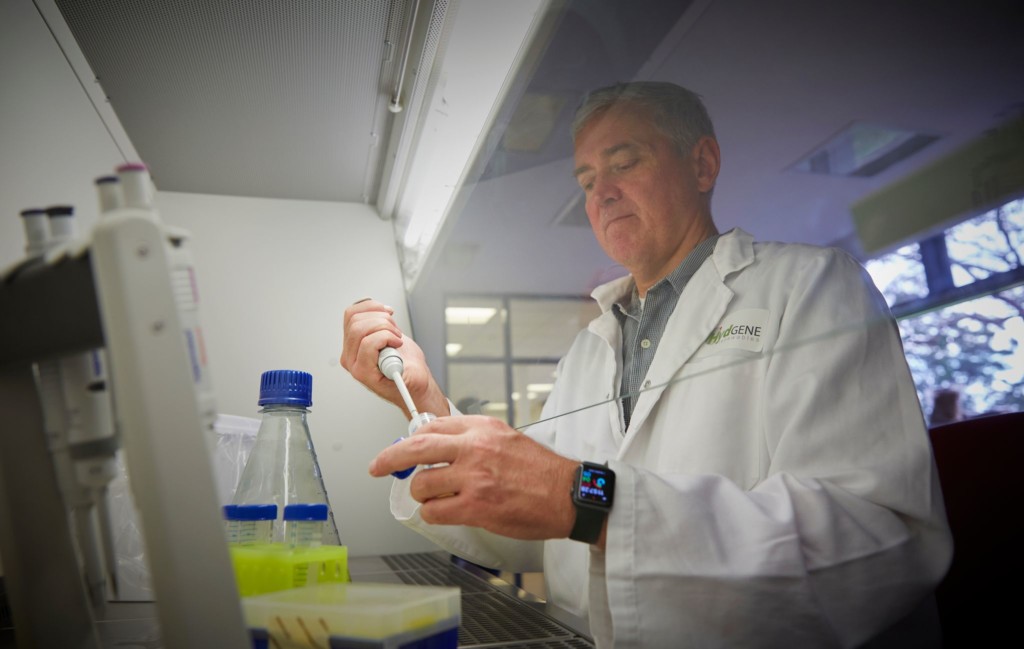
Chief Scientific Officer Robert Willows analysing sugars from biomass sources for hydrogen production.
HydGene envisage their technology to be used on-site by the farmer to switch to green hydrogen for ammonia production, used for fertiliser. This puts the control back in the farmers’ hands – making fertiliser when they need it, all on site.
RELATED: Onside’s Series A cap raise set to reduce global biosecurity risks for agriculture
HydGene is excited about the new tractors, vehicles and technologies coming into the farming sector that are fueled by green hydrogen and how they can support this through the production of green hydrogen.
Louise explained, “Replacing diesel generators with hydrogen generators is a game changer for farmers. A lot of farms use diesel generators when their wind and solar energy supplies are intermittent, and they need to fill this energy gap. Whereas, if you have the hydrogen and a fuel cell, you can start to use green hydrogen to fill that gap.”
RELATED: Safflower oil: The game-changing alternative to petroleum and palm
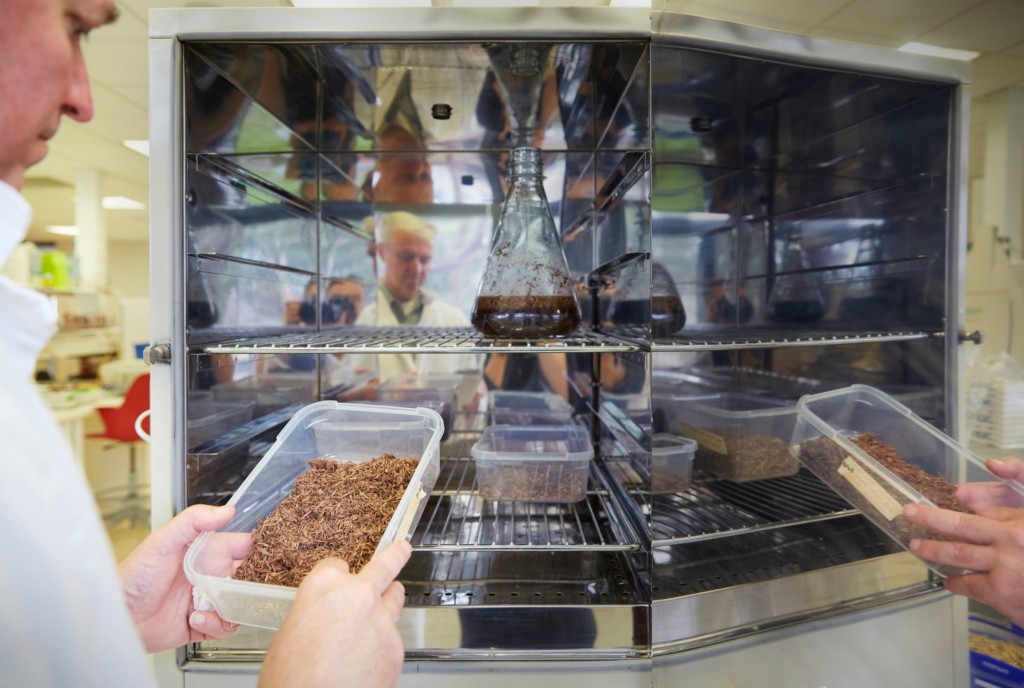
Processing of various straw sources to extract sugars for hydrogen production.
Roughly transporting and storing hydrogen can more than triple the costs to hydrogen, this is where HydGene comes in. Using their technology, they can make clean hydrogen on-site, and on-demand, which eliminates the need, complexities and high costs of storing and transporting hydrogen to the end user.
RELATED: Synthetic biology and its place in our future food system
“It’s a plug-and-play approach. Feeding the sugars from the feedstock directly into the biocatalyst to produce hydrogen, with the ability to turn it off and on so you have control for making the hydrogen. The farmer has full control of their hydrogen supply and there is no need to transport feedstock, reducing major costs.”
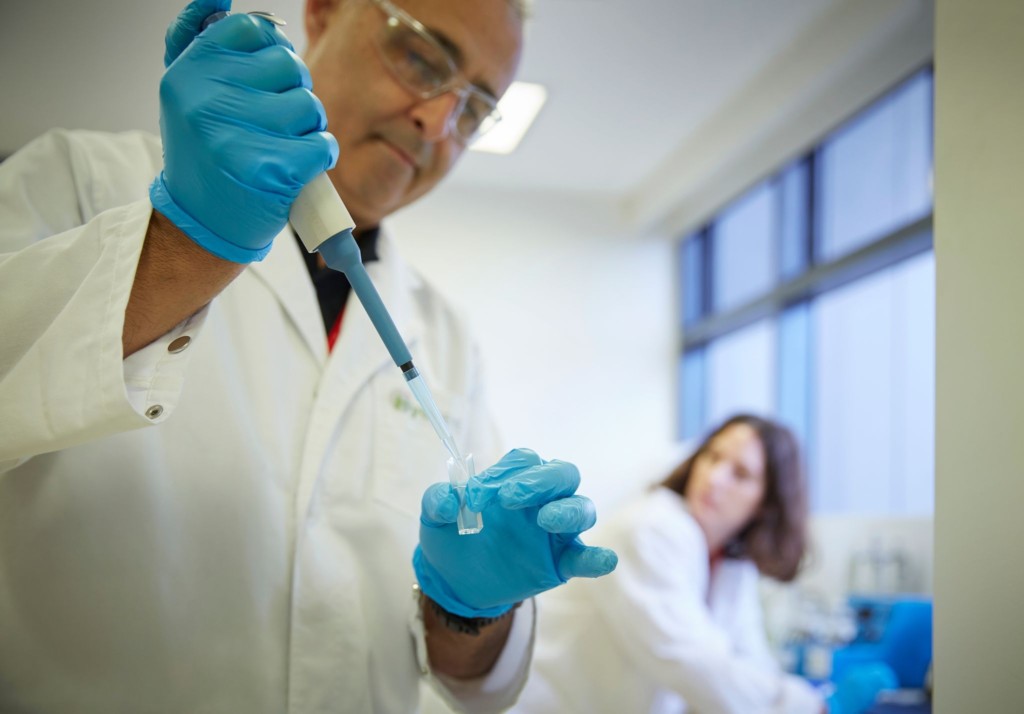
Advanced analytical methods are used to monitor hydrogen gas production and system efficiencies.
What’s next for HydGene Renewables?
The team’s first funding support to grow the technology, was received while at Macquarie University, through an R&D Grant for clean hydrogen production from the Australian Renewable Energy Agency (ARENA).
HydGene have since received funding from the Department of Industry, Science, Energy and Resources through the Business Research and Innovation Initiative (BRII). They are also working with the Grain Research and Development Corporation (GRDC) and CSIRO to develop a proof-of-concept process for the conversion of farm biomass waste, such as grain crop stubble, into clean hydrogen.
“The GRDC grant has been fabulous for HydGene, we have been able to develop the pipeline that we need to look at feedstock, understand the sugar profile and further engineer our strengths to make them more efficient, but it’s currently limited to looking at what a grain crop can do. We want to find further investment to look at other feedstock markets and supply chains to scale,” Louise explained.
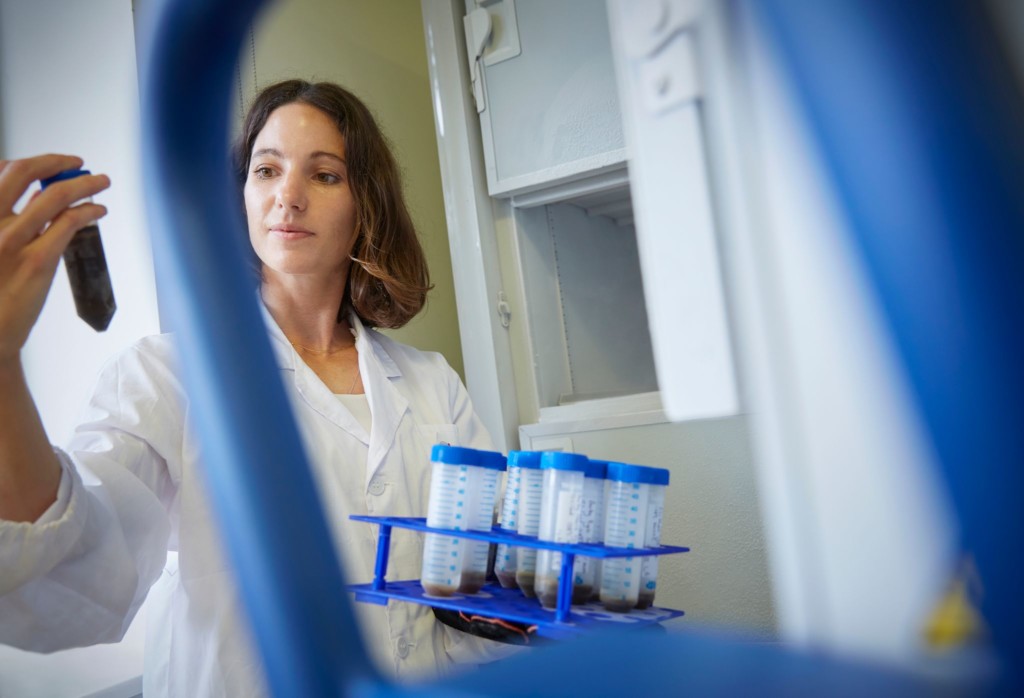
New engineered bacterial strains are screened against their large databank of biomass sources for maximum hydrogen production.
“We’re also looking for support to help scale the biocatalyst module that is being developed. We currently are working towards what we call our commercial unit that makes 100 grams of hydrogen per day, which is the equivalent energy output to what one commercial solar panel can make. We’re looking for capital investment to scale that technology.”
RELATED: NorVicFoods calls agrifood businesses to solve industry-wide challenges
HydGene are also interested in talking to anyone with connections to biomass supply chains and those looking for clean hydrogen for new and emerging technologies.
“Hydrogen has such a buzz out there at the moment, which is great. There is a strong focus on making hydrogen through green electrolysis to get to the reduction target by 2050, but there are other ways that we can get there and quicker.”
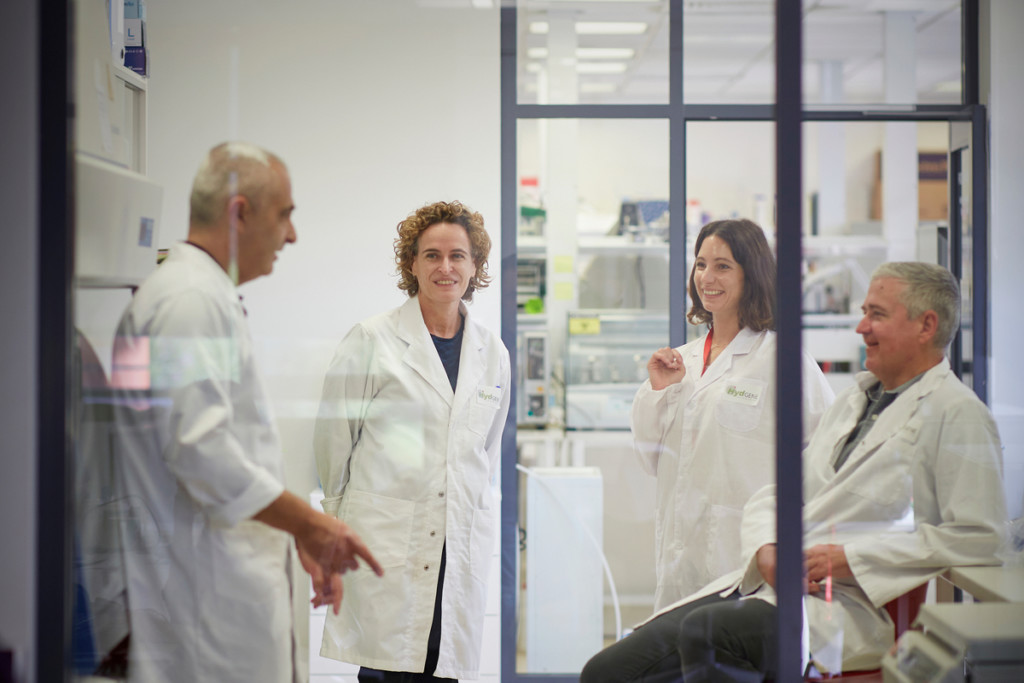
The HydGene team are focused on providing a sustainable solution that can accelerate the transition to green hydrogen.
“We are changing the supply market a little bit and can do it quicker with lower costs to open up new industries, especially across agricultural and forestry sectors,” said Louise.
Learn more about HydGene Renewable’s commercial opportunity on the growAG. platform here.
Enjoyed this story? Want to learn more about the Asia Pacific region’s innovative agrifood tech ecosystem? Sign up for our newsletter here and receive fresh stories about global leaders, farmers, startups and innovators driving collaborative change.
